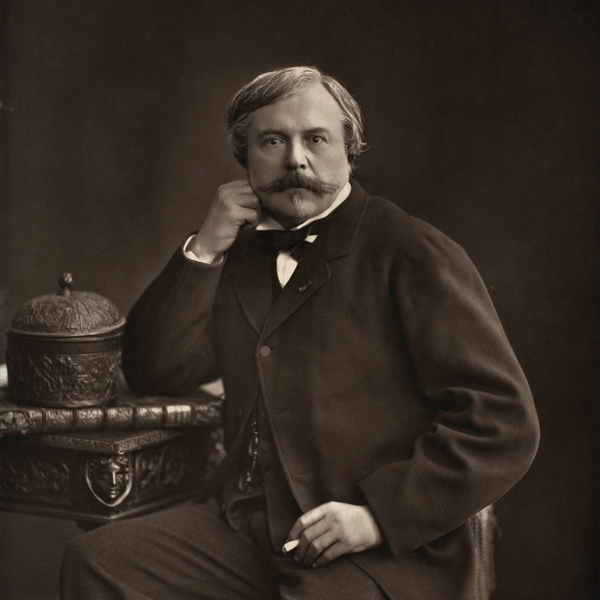The Prix Goncourt, France’s prestigious literary prize
The Prix Goncourt is a French literary prize given each year to an outstanding work in prose. Usually, novels are preferred. It is the most prestigious literary award in France and in literary circles it is considered the French equivalent of the Pulitzer Prize and it was awarded on November 3rd this year. The prize is named after the Goncourt brothers, Edmond and Jules, known as art critics and writers of novels and diaries in the 19th century. Their relationship was quite unique, they not only never spent a day apart in their life, called themselves Juldemond and claimed to be twins (although they were born eight years apart) but they also wrote together all of their novels and non-fiction and even their journal, which they wrote using the « dual dictation » technique, where one brother dictated to the other. Their style of writing was so similar that it was impossible to tell which brother wrote a particular passage. Their journals provide a close and caustic view of the French social and literary life in the 19th century. They were quite unique and paradoxical individuals, as they hated everything, from women and children to education and democracy, but they deplored the rough treatment of servants for example and lived in a very popular neighborhood in Paris. They inherited a reasonable amount when their mother passed away, so they did not have to work for a living (another thing they absolutely abhorred). Jules died of syphilis in 1870 and Edmond continued the journal without his brother after his death. Few excerpts of it were published during their lifetime as they feared lawsuits from those mentioned in the journal (there are sordid, ridiculous and scabrous anecdotes upon anecdotes about the crème de la crème of French letters, including many catty passages about « little pot-bellied » Zola), but a complete edition was published in the 1950s. Edmond also held a literary salon in his home, where many of the best writers of the time met every Sunday and where he hoped he would found an academy that would bear the Goncourt name and would award a prize to an up and coming young writer. He died in 1896 and provided in his will for the setting up of the Académie Goncourt, which he hoped would ensure his brother’s posterity and be their contribution to the French literary heritage. The Goncourts were also aware of the fact that the disappearance of aristocratic patronage had meant fewer sources of income for writers, thus, the prize would provide a modest income for a few years for the winner. The prize money today is a mere 10 euros, but the laureate is guaranteed huge sales. The idea behind the academy was to do away with conventionalities and put forward a work of fiction that did not meet the French Academy’s criterion of excellence in literature.

Edmond Goncourt by Nadar — Musée des beaux-arts du Canada, Domaine public, https://commons.wikimedia.org/w/index.php?curid=24901587
The prize was first awarded in 1903 for “the best and most imaginative prose work of the year” and has been awarded every year since, its laureats include Marcel Proust, Simone de Beauvoir and Marguerite Duras. The winner is chosen by the members of the Goncourt Academy, who meet on the first Tuesday of every month in the Drouant Restaurant in Paris, a restaurant that Edmond de Goncourt visited often in his last years. The members have their own silverware with their names engraved on the handle. Edmond made it clear in his will that politicians and nobility were barred from becoming members of the jury, only men of letters were admitted. He also appointed the first members in his will. The members of the Academy used to be appointed for life, but since 2008 they have to step down when they reach 80. Edmond also stipulated in his will that they were to receive a monthly income and a dinner. Since the members hold their positions for decades, there have been numerous controversies surrounding their choice of winner, with some implying that the Academy’s choice is often political or based on personal interest rather than being based solely on the book’s worth. In fact, some critics referred to the prize as the «Goncourt mafia », as every year, at least two members of the jury had ties to the winner’s publisher. This changed in 2008, when, under the influence of Bernard Pivot, the Academy made efforts to become fairer and more transparent. However, there is already a controversy around this year’s nominations. The author of one of the books up for consideration is the partner of one of the jurors, Camille Laurens, who, it turns out, voted for the book to be included on the list, explaining that there was no conflict of interest. A week later, she published a scathing review in Le Monde of a novel that is also on the list for the Goncourt and is the direct competitor of her partner’s novel. Added to the charges of undue influence, is the fact that only twelve women have won the prize so far. In fact, in 1904, twenty women journalists founded the Prix Femina, to encourage women writers. This is still a major literary prize today. The Prix Goncourt inspired the creation of many other literary prizes, many of which still exist today.
The Goncourt brothers’ wish was to create a prize that would encourage new talent and would go against the established rule. One thing is certain, they would have quite enjoyed writing in their journal about all the scandals related to the Academy and all the other literary prizes. You can read more about the Prize’s history, in French.
The winner of the prize this year is Mohamed Mbougar Sarr, for his book « La Plus Secrète Mémoire des Hommes ». Past laureats of the Prix Goncourt include Hervé Le Tellier, with his book L’Anomalie*, Jean-Paul Dubois, Nicolas Mathieu (And Their Children After Them*), and Eric Vuillard (The Order of the Day* and The War of the Poor*).
*these titles are available at the Book Room in English



